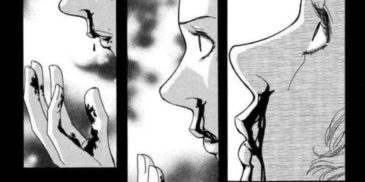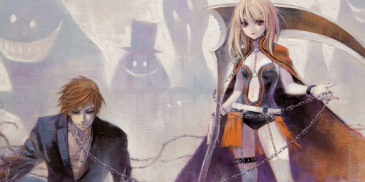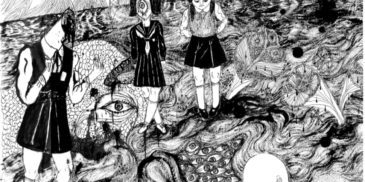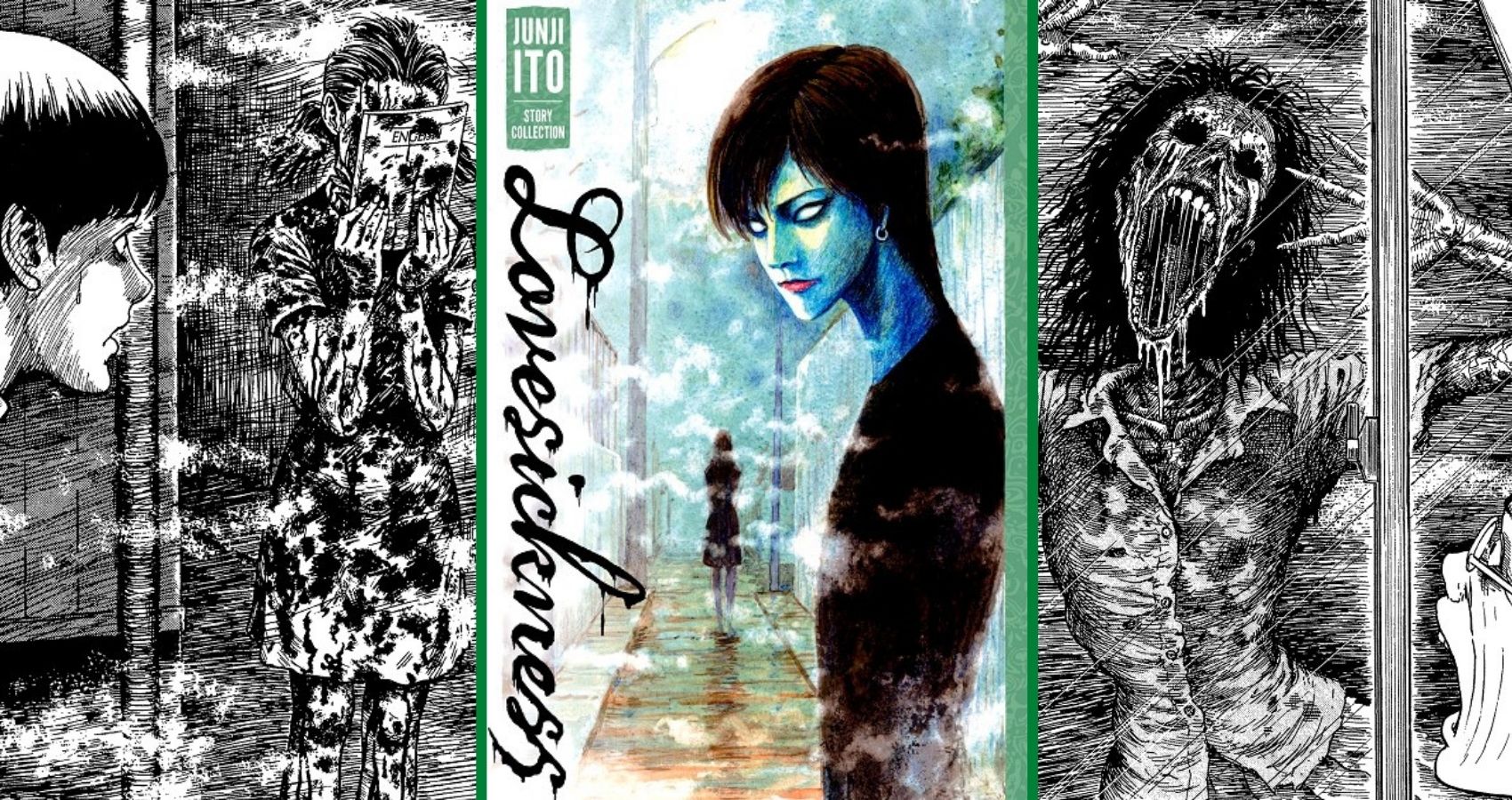
Junji Ito’s at it again with the suicide-filled creepfest that is the Lovesickness collection, and like all of his work, it is worthy of a manga review. Taking its name from the story told in the first half of the book (printed elsewhere as The Boy At The Crossroads and The Lovesick Dead), the first major storyline deals with a sweet boy named Ryuske moving back to his childhood town, the place where he accidentally caused a horrible tragedy.
You might well find this volume less disturbing than his others – rather than unsettling concepts like “everything is turning into spirals”, or “there’s a man living in my chair”, Lovesickness deals more with your classic hauntings, the idea of fate and, later in The Strange Hizikuri Siblings, troubled families where even Souchi might belong. These two collections are followed by three short stories: The Manson of Phantom Pain, The Rib Woman, and Memories of Real Poop (yes, really).
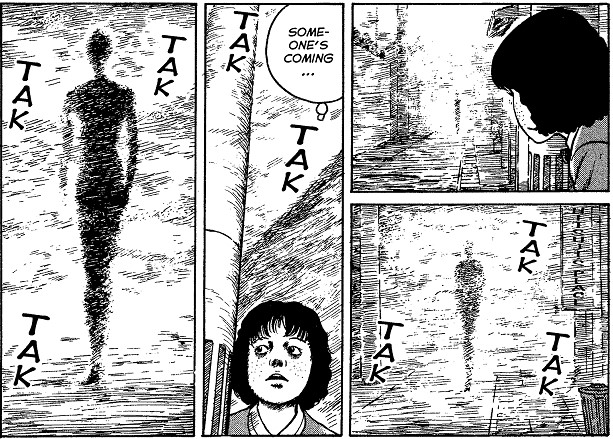
What the main story arc does best is deal with the idea of compulsion – the threads that pull us toward our own destruction. Not unlike The Enigma of Amigara Fault in that respect, a harmless school game turns the girls of this mysteriously foggy town into love-obsessed zombies who allow the pervasive madness to drive them to extremes of starvation, stalking, and eventually suicide.
What works especially well is the feeling of the situation snowballing, from one damaged woman to an entire town of young women. The madness spreads outwards from these spots quite literally, and are certainly connected to our hapless hero Ryusuke.
As is often the case with Junji Ito’s work, the main characters are teenagers, starting out as people you or I might personally know or have known. You could argue that spiralling mental health takes root in children more easily, or that their age makes their demise more tragic – or perhaps it’s just that the personality of a teenager is so changeable and impressionable that it’s more plausible for them to have such a drastic breakdown when faced with the idea that they’ll never be loved.
The fortune telling game itself does seem to be based on a real Japanese ritual game called Tsuji-ura, although thanks to the internet, creepypasta and my ignorance of the language, it’s hard to tell how authentic this is. Most often it’s listed under the same kind of games as One Man Hide and Seek, or the Elevator Game – in the UK we might be more familiar with Bloody Mary. All of these games involve an urban myth and entity that might help, or might hurt.
In Lovesickness, people go to the crossroads – a place long associated with spirits and devils in many cultures around the world – and ask for their fortunes to be told. A malignant spirit in the form of a tall, handsome boy with piercings seems to prey particularly on young girls, telling them they’ll never be loved, and encouraging them to kill themselves.
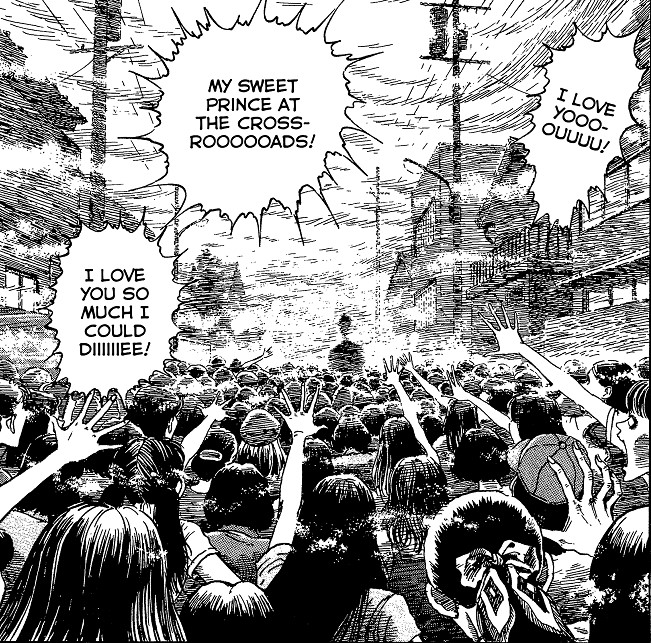
The first chapter of this story was included in the anime series Junji Ito Collection, but it’s the prolonged story that really makes it work well as we see Ryusuke pulled deeper and deeper into the strange mystery of the handsome boy at the crossroads, questioning his own identity and coming to terms with the part he’s played in other people’s fates.
The switch to The Strange Hikizuri Siblings happens quite abruptly; if there’s one thing Ito isn’t fantastic at, it’s finishing his stories. I found this short series a bit more unsettling than Lovesickness, as the bizarre family torture each other and outsiders for perceived slights. It really is like a family of Souichis, and that’s a pretty terrifying thought.
The Rib Woman is a classic tale of teenage girls taking their need to be beautiful too far, although the twist at the end makes this a lot more upsetting, while The Mansion of Phantom Pain might be absurd for most but for a chronic pain sufferer – hello – the idea of feeling pain externally to your body is absolutely horrifying, especially when the pain seems to take on a spirit of its own.
The Lovesickness collection is essential reading for any Junji Ito fan and fits perfectly into his delightfully fucked up world of stories, but maybe misses the mark when it comes to that under-the-skin terror for which he’s so well known.

More Manga Reviews:
Reading Club- Vol. 1 Manhwa Review – Be Careful What You Read
Reading Club is advertised as the first Korean horror comic for girls. That line alone enticed me enough to pick it up over a decade ago from Udon Entertainment. Many…
Black Punch – The Premier Horror Manga Magazine of the 1970s
After contributing to periodical manga magazines such as Manga OK in the mid-60s, the ever-ambitious Taro Bonten would decide to create his own bespoke gekiga magazine in 1969 named Black…
Ghost Reaper Girl (2020-ongoing) Manga Review—Action, Humor, and Horror References
Chloe Love is a struggling actress, best known for playing Ghost Reaper Girl, the main character of a cult horror movie about a high schooler in a blood-soaked bathing suit…
Sensor (2019) Manga Review – Junji Ito’s Take On Cosmic Horror
Junji Itō is easily the most prolific horror mangaka in English translation. Viz Media has made a concerted effort to bring as much of his work to the west as…
Happiness (2015) Manga Review: Life Sucks but Being a Vampire Sucks Even More
Theoretically, a vampire is one of the sexiest supernatural transformations you can have in fiction. You remain young, you become strong and agile, and nothing can kill you. However, Happiness…
KSKHH (2021) Manga Review – Oh What Beautiful Filth!
“Daisuke Ichiba is not a manga artist, he is a drawer of beautiful women!” There are few Japanese underground creators that can hold sway over a select few and never…
Jenny is a creative copywriter living just outside of Liverpool who loves horror, board games, comics, video games and industrial metal.
